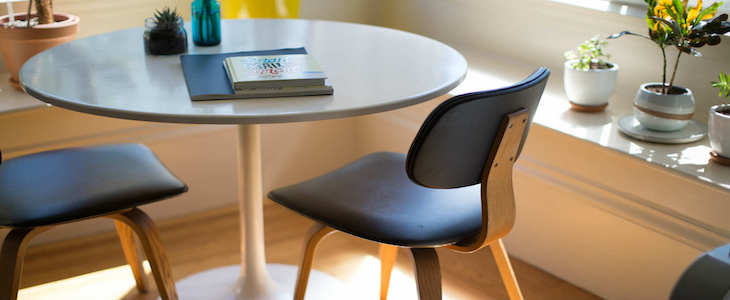
You made it. You got off the plane and finally arrived in Japan. However, after the first initial joy, a sudden realization might hit you right in your face; “where to start? So much to do!”.
Moving is always a stressful experience but can be even more stressful when one moves to another country. The language is different and things might work totally different.
But the experience might be less stressful if you come a little bit prepared.
I always say, things will work out somehow. They must. And they do. But how one gets there and how much stress is involved is entirely up to oneself. And I like to be prepared (warning: German stereotype proven to be true here).
Hopefully, you already secured your housing. Do you stay in a shared apartment? Or a furnished private apartment? Make sure before you arrive what you will find there. Bedding is often not included and arriving in the middle of the night and then having no blanket and pillow might be a tad uncomfortable. Some places offer rental bedding (new and used) or even offer to buy things for you and have them delivered when you arrive. Consider renting bedding if you are only staying for a short time because both buying and disposing might be a hassle.
If you still need a lot of things to get started, like plates, cutlery, cleaning supplies etc., a great way to get started cheaply is the heavenly 100 Yen store. Now, I don’t know where you are from but where I am from, 1 Euro Shops are considered to be really cheap. And I mean quality wise. Going to the 1 Euro Shop is greatly frowned upon and if a new shop pops up somewhere people will say that this is the beginning of the end of this particular street. Not so in Japan…people ranging from young to old love going to the Hyakkin (short for 100 Yen Shop) and you can find amazing things there. Also a lot of things you didn’t know you needed but believe me you need them now – like a fake egg you throw into the boiling pot together with your other eggs and the fake egg tells you when yours are ready…
For blankets, pots and everything else that is supposed to be of better quality you can also check out Muji and Nitori. Those two have shops all over Japan and Muji is great for its very simple designs. If you go crazy at Nitori (they also have furniture – basically like a Japanese IKEA), you can get your stuff delivered within a few days (you can tell them the exact day and a time range when they should come-even on weekends!). Ikea also has a few branches in Japan and delivers as well. If you want to get used stuff, try craigslist or numerous Facebook groups. And I know, it is painful to think about your departure when you just arrived but in the end, everything you buy you also have to get rid of later. And chances are pretty high, your landlord won’t allow you to throw just everything into the garbage bin. Consider renting things if you are just there for a very short time or try to resell your used stuff. Garbage disposal has become stricter in Japan in the last years and it is time-consuming and expensive to get rid of bigger things (bedding, electronics, etc).
So, hopefully you got all your stuff. But are you already a legal resident? If you are not on a tourist visa, you need to officially register in Japan. If you arrived via Narita, Haneda, Kansai or Chubu Airport, you should have gotten your residence card (formerly known as alien registration card) right away when entering the country. You entered Japan via another airport? Then head straight to your local city hall with your passport to apply for your residence card! Don’t wait with this but do it immediately after your arrival. Without your residence card you are not able to do much and it might take a while for the card to be ready.
Consider whether you need to open a bank account. Most banks do not offer English service, which makes it more difficult to open an account and to actually use it. There are also banks that might refuse you to open an account because your visa indicates you are not staying that long. One exception is Shinsei Bank. They offer English service and you can even do your online banking in English. This is pretty advanced for Japanese banking standards. They only have a few branches but you can withdraw money from several other bank ATMs as well as conbinis for free. Citybank also offers English service but you need to pay a monthly fee for your account there.
And don’t forget when you are low on cash: Japan is a cash-country and paying with your bank card is not possible everywhere. You might also have problems with withdrawing money from ATMs with your international credit card (Japan Post Bank ATMs usually work). And another weird feature of Japanese banking world – many ATMs have closing times or charge extra fees after a certain hour. You are out of cash on a Sunday evening? Well good luck finding an ATM…
What about a mobile phone contract?
Are you staying for a short time? Then you might get a data only sim card for a short period or with a limited amount of data. If you want the “real thing”, aka a contract with a Japanese number and data, then you will need a residence card, a Japanese bank account and most often a credit card.
Of course, it depends on what you prefer but I cannot really recommend you to go to one of the big three companies to make a contract (au, docomo, softbank). They are extremely expensive, especially if you want both voice and data. You pay easily from 5,000 to 10,000 Yen per Month and their contracts are for two years. If you want to cancel before the two years, you will pay a penalty fine. Many foreigners and also Japanese have swapped over to getting sim cards only that are actually provided by sub companies of the big three but much, much cheaper. You can use your old phone (but make sure it unlocked and sim-free) or just buy a new sim-free phone. These cheaper options also require a contract, but they are often shorter (one year) or cancelling the contract earlier might not be as expensive. There are countless providers now with different plans and for example my monthly rate is under 2,000 Yen for voice and data (3GB),but I also don’t call that much (I use Line or Skype for that to keep the costs low). Data-only would be even cheaper but I urgently needed a phone number. Also consider how much data you need. 3GB p/m is enough for me but I don’t watch that many videos on my phone. You will find numerous providers at Bic Camera and Yodobashi Camera that sell sim-free phones and sim cards.
This was just a quick overview. Just on banking or mobile phones one could write whole novels. But I hope this gives you a glimpse of what awaits you in the first days.
A reminder to let you know that if you are looking for an accommodation in Japan, our portal JapanRoomFinder.com has plenty of apartments and rooms in share houses available all over Japan. Send us an enquiry if you like one of them.



